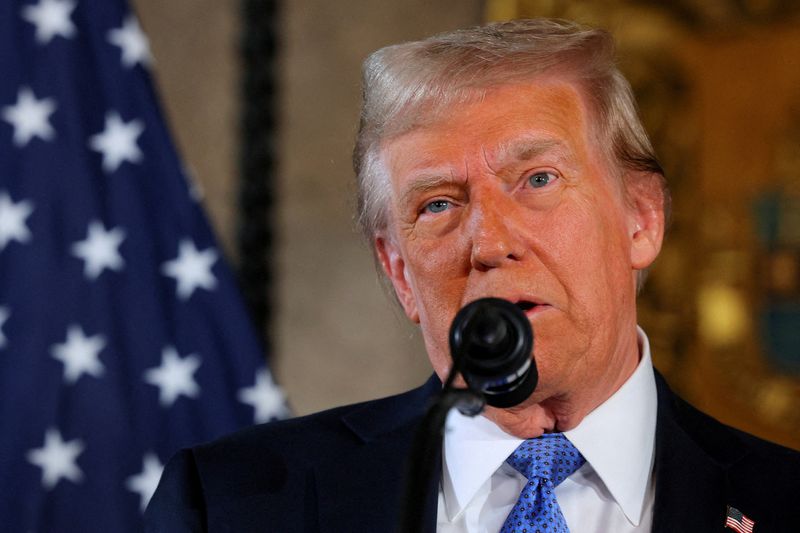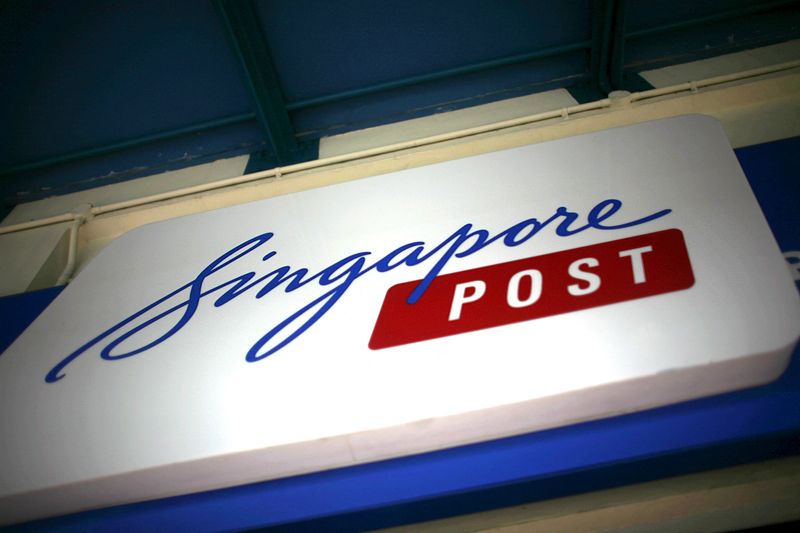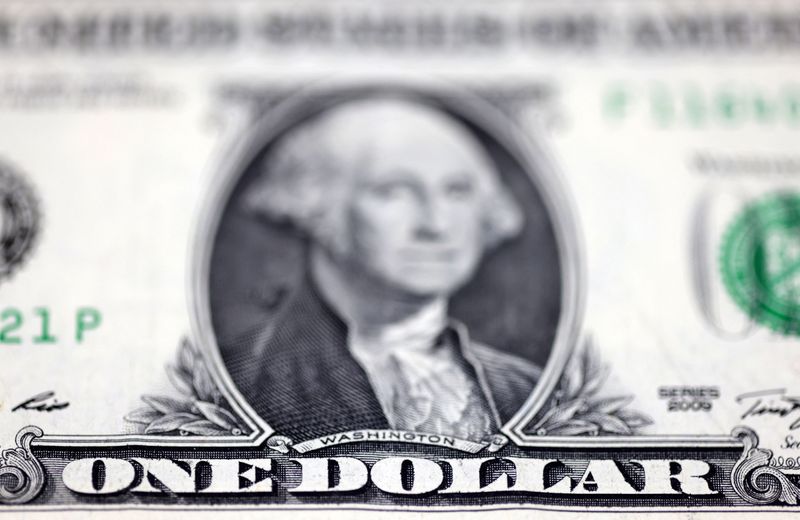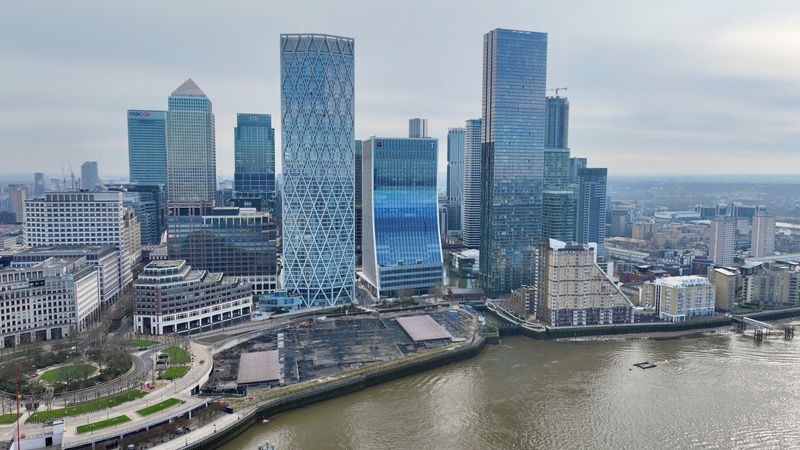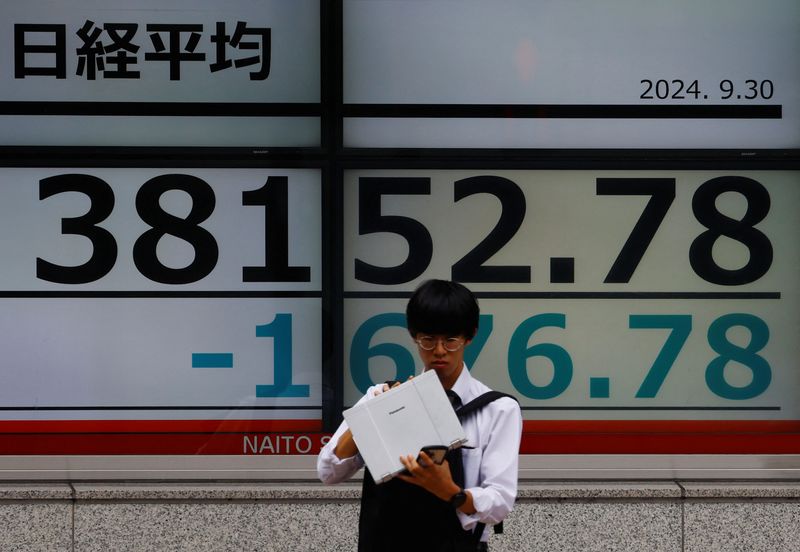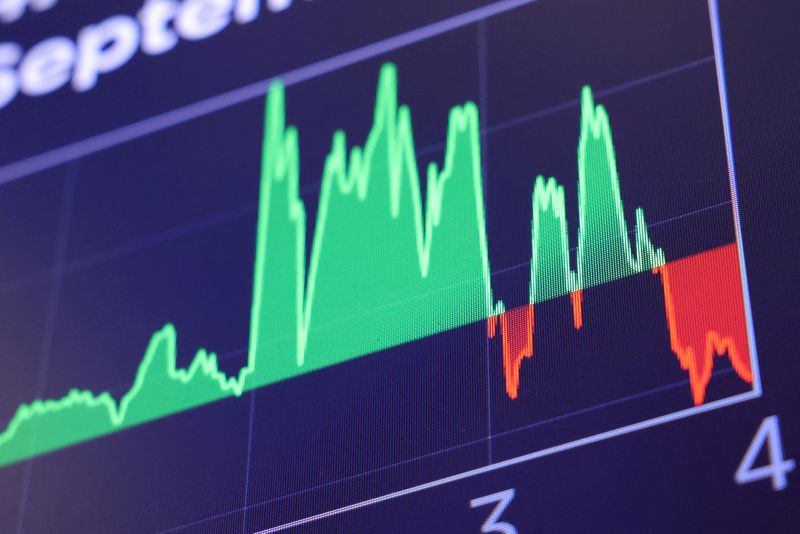TOKYO (Reuters) – Japan’s factory activity shrank for the sixth straight month on lacklustre demand while the service sector extended gains in December, business surveys showed on Monday, highlighting the economy’s increasing reliance on services.
The au Jibun Bank flash Japan manufacturing purchasing managers’ index (PMI) dropped at a slower pace to 49.5 in December from 49.0 in November. The index has remained below the 50.0 threshold separating expansion from contraction since June.
“Diverging trends continued to be seen in demand, with services firms seeing the strongest rise in new business in four months, while goods producers saw a stronger reduction in orders,” said Usamah Bhatti, economist at S&P Global Market Intelligence.
Business confidence in the factory sector softened to the lowest level since May 2022. Highlighting persistent cost pressure, input inflation climbed at the fastest pace in four months while output price surged to the highest level since July.
Meanwhile, the au Jibun Bank flash services PMI rose to 51.4 in December from 50.5 in November.
While growth reached a four-month high, its business sentiment dipped over concerns of labour shortage and rising costs. The higher input costs pushed the average selling price up at its fastest pace in eight months.
The au Jibun Bank flash Japan composite PMI, which combines both manufacturing and service sector activity, stood at 50.8 in December, rising from 50.1 in November.
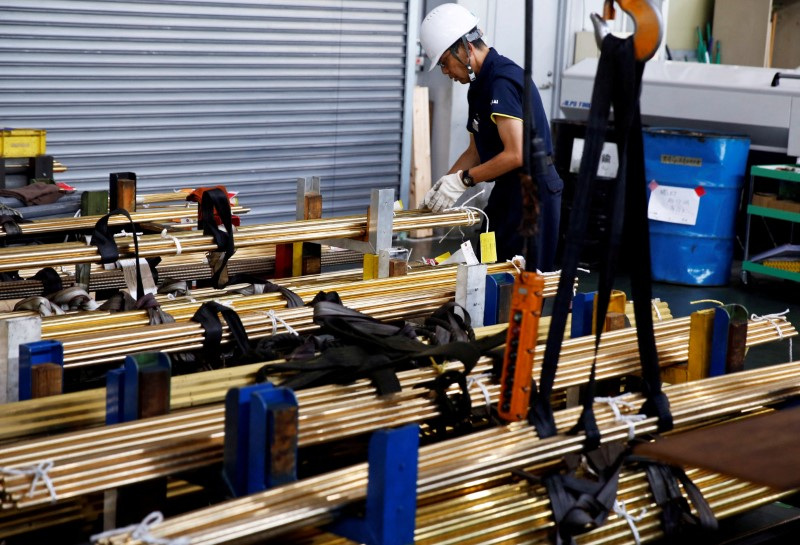
A quarterly Bank of Japan “tankan” survey from Friday showed Japanese big manufacturers’ sentiment improved slightly and non-manufacturers remained upbeat on business conditions in the three months to December.
However, companies expect business conditions to worsen over the next three months as soft global demand and threats of higher tariffs from U.S. President-elect Donald Trump cloud the outlook.


